
The Age of the Social
The concept of society sui generis society as a level of reality which could be studied scientifically crystallized in the middle of the nineteenth century in Europe, with the work of Durkheim, Marx, and Weber and today, more than at any other period in history, the idea of the social has gained a foothold in philosophy, biology, and neuroscience. However, this idea has emerged into prominence not through the historical or contemporary efforts of sociologists, but mainly through the efforts of biologists and neuroscientists.
This book seeks to re-establish the credentials of sociology as the science of society. While acknowledging the amalgamation of traditional disciplines into interdisciplinary and multidisciplinary networks of research and theory, and championing interdisciplinarity in recognising the capacity of converging perspectives to yield more interesting general theories of social life, the author defends disciplinarity inmaintaining sociologys achievements as a discipline.
With chapters on the sociological world view, imagining society, the self, love, education, mathematics, and religion, The Age of the Social re-states the importance of sociology as the source of robust ideas about the social in an age in which this notion has grown in importance. As such, it will appeal to scholars across the social sciences, with interests in method and philosophy in the social disciplines.
Sal Restivo retired as Professor of Sociology, Science Studies, and Information Technology at Rensselaer Polytechnic Institution in 2012. In the following years, he was a Senior Fellow at the University of Ghent (2012) and Adjunct Professor of Technology, Culture and Society at NYUs Tandon School of Engineering (20152017). He now works as an independent scholar. He is Honorary Special Lecturer in Science and Technology Studies at Northeastern University in Shenyang, China. He has held Special Professor positions and endowed chairs at the University of Nottingham, UK, Harvey Mudd College, USA, the Free University of Brussels, Belgium, The University of Gothenburg, Sweden and Roskilde University, Denmark. He is a founding member and former president of the Society for Social Studies of Science and editor of Science, Technology and Society: An Encyclopedia. He is the author of Red, Black, and Objective: Science, Sociology, and Anarchism; Science, Society and Values, and The Sociological Worldview, and co-author of Asphalt Children and City Streets with DAmbrosio and Mesquita and Worlds of ScienceCraft: New Horizons in Sociology, Philosophy, and Science Studies with Weiss and Stingl. His most recent book is Sociology, Science and the End of Philosophy: How Society Shapes Brains, Gods, Maths and Logics.
This book is a revised, updated, and expanded version of The Sociological Worldview, originally published by Basil Blackwell, Oxford, in 1991.
NOTE: The rights to this publication were transferred to the author by Wiley/Blackwell in a letter that is in the hands of Neil Jordan at Taylor Francis/Routledge.
The Age of the Social
The Discovery of Society and the Ascendance of a New Episteme
Sal Restivo
First published 2018
by Routledge
2 Park Square, Milton Park, Abingdon, Oxon OX14 4RN
and by Routledge
711 Third Avenue, New York, NY 10017
Routledge is an imprint of the Taylor & Francis Group, an informa business
2018 Sal Restivo
The right of Sal Restivo to be identified as author of this work has been asserted by him in accordance with sections 77 and 78 of the Copyright, Designs and Patents Act 1988.
All rights reserved. No part of this book may be reprinted or reproduced or utilised in any form or by any electronic, mechanical, or other means, now known or hereafter invented, including photocopying and recording, or in any information storage or retrieval system, without permission in writing from the publishers.
Trademark notice: Product or corporate names may be trademarks or registered trademarks, and are used only for identification and explanation without intent to infringe.
British Library Cataloguing-in-Publication Data
A catalogue record for this book is available from the British Library
Library of Congress Cataloging-in-Publication Data
Names: Restivo, Sal P., author.
Title: The age of the social : the discovery of society and the ascendance of a new episteme / Sal Restivo.
Description: Abingdon, Oxon ; New York, NY: Routledge, 2018. | Includes bibliographical references and index.
Identifiers: LCCN 2018002280 | ISBN 9781138234369 (hbk) | ISBN 9781315307152 (ebk)
Subjects: LCSH: Sociology--History. | Social sciences--History.
Classification: LCC HM435 .R47 2018 | DDC 301.09--dc23
LC record available at https://lccn.loc.gov/2018002280
ISBN: 978-1-138-23436-9 (hbk)
ISBN: 978-1-315-30715-2 (ebk)
Ein Mensch wie ich kann ohne Steckenpferd, ohne herrschende Leidenschaften, ohne einen Tyrannen in Schillers Worten, nicht leben. Ich habe meinen Tyrannen gefunden und in seinem Dienst kenne ich kein Ma.
Sigmund Freud, letter to Wilhelm Fliess (1895)
A man like me cannot live without a hobby-horse, a consuming passion in Schillers words a tyrant. I have found my tyrant, and in his service I know no limits. My tyrant is psychology, it has always been my distant, beckoning goal and now since I have hit upon the neuroses, it has come so much nearer.
Sigmund Freud (1895)
Dedicated to my mentors, educators, and teachers; the memory of my parents Mafalda and Phil; my sisters Nancy and Emily; the other Emily; and my sons David and Daniel.
As a once and always advocate of the sociological imagination one might say that in the way psychology was Freuds tyrant, sociology has been and is my tyrant. I have been, to paraphrase Freud, tormented by the goal of examining what shape the hard cases of scientific knowledge, mathematics, logic, the brain, and god take if one considers them in sociological terms. As a result, I have provoked Barry Barnes to ask me: Sal, why are you so sociological? Barnes is among those founders of science studies originally trained in the physical and natural sciences who migrated to sociology. Historian Nils Roll-Hansen echoed Barnes sentiment when he asked me whether my book Mathematics in Society and History wasnt an exercise in sociological reductionism. I have been and am so sociological because revealing and explaining the social level of reality and applying the sociological imagination is extremely important and extremely difficult. The most immediate cause of this difficulty is that sociology challenges the core intuitions of who and what we are, and in particular has to overcome the recalcitrant myth of the individual and the powerful feeling that we possess unmediated agency and free will.
I have often been tempted to be too ambitious relative to my readers tolerance for complexity and exploration as opposed to easy answers, transparent meanings, and packaged arguments. When I have been referred to as eclectic it has often been, I imagine, with the anthropologist Marvin Harris notion of the sin of the eclectic in mind. And when the sociologist of knowledge Kurt Wolf, commenting on one of my earliest lectures on the sociology of mathematics, referred to me as erudite, he did so with what I experienced as pejorative intent. In this moment, in this book, I cannot promise to have rid myself of erudition or the sin of the eclectic; but I have tried to be more transparent, more lucid, more narrative in my exposition. I have probably fallen short of the packaged forms of argument taught at Oxford and Cambridge. It remains necessary to draw people into sociology by way of perspective, basic concepts, fundamental rules of reasoning. This project is still alive and must be carried further before we can be assured that there is a foundation for more formal arguments, proofs, and mathematical models. We can find all of these arguments, proofs, and models in the literature but often at the cost of deep sociological understanding. We are still walking in the footsteps of the classical sociologists; they are still our leaders, our mentors, our interlocutors of the moment. I am therefore unapologetically classical in my approach and not going to be distracted by the potpourri of post-sociologies and anti-sociologies that now dot the intellectual landscape. We are still dominated by intellectuals and scholars entranced by literary and philosophical discourses which means they are more theologians than scientists.




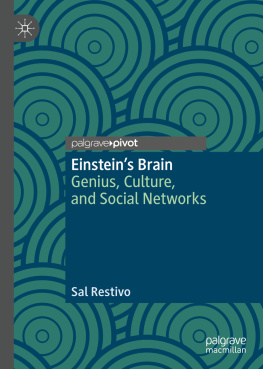
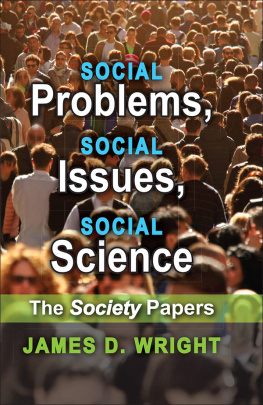
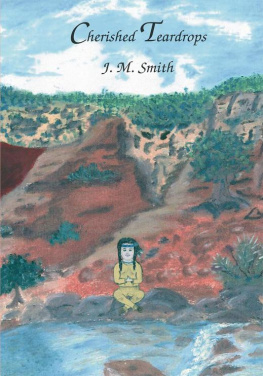

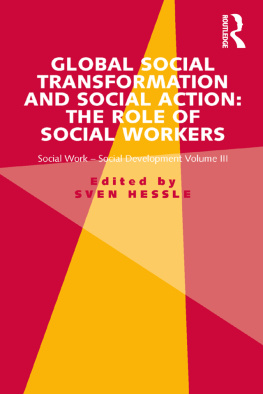
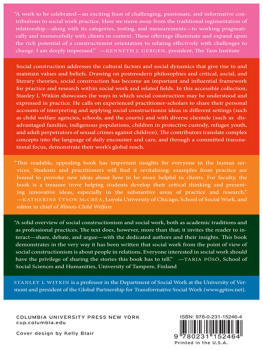


![switching.social [switching.social] - The Switching Social Handbook](/uploads/posts/book/131346/thumbs/switching-social-switching-social-the-switching.jpg)